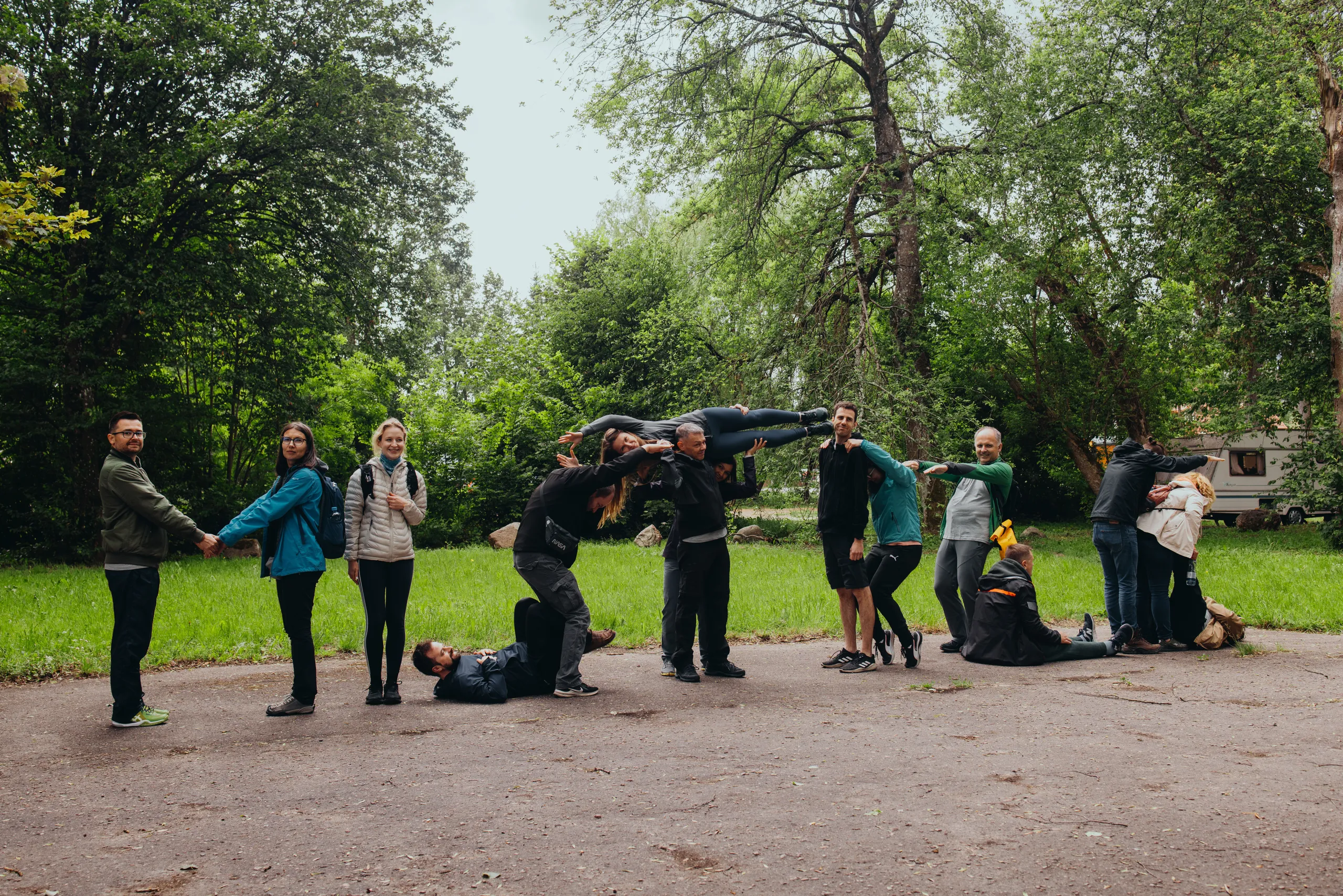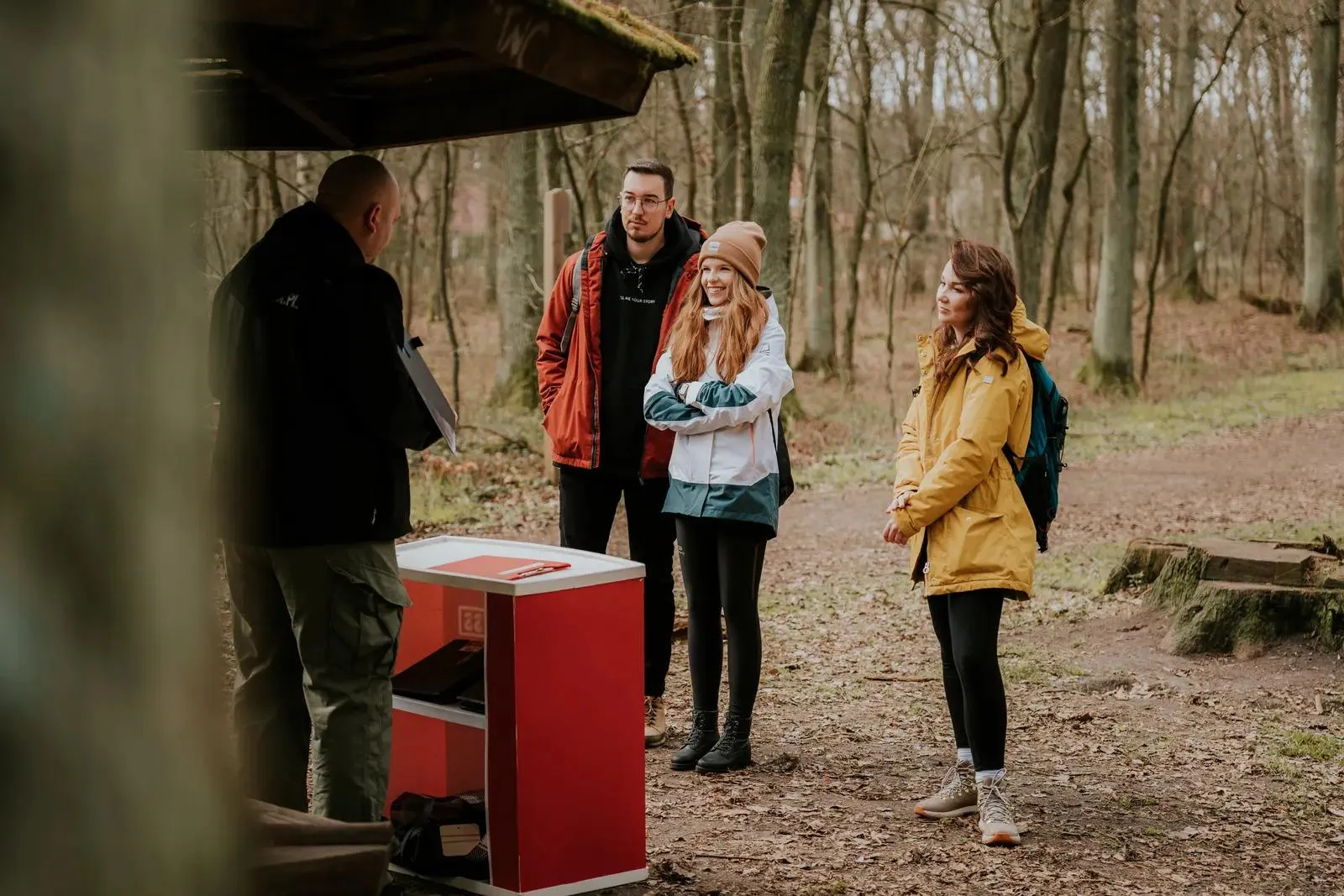In this article you will find
Silos in the company: How do outdoor games break down barriers between sales and marketing departments?
Collaboration between the sales department and marketing often resembles a long-term marriage where partners have stopped talking to each other and have started to merely exchange accusations. Salespeople complain about the quality of the leads provided, while marketers get frustrated that their campaigns are wasted due to a lack of closing skills. This is a classic example of informational and competency silos. Many companies try to solve this problem with endless meetings, but more and more often, the key to success turns out to be changing the environment and a well-designed field game.

What are silos and why are they killing your business?
Silos in a company are a phenomenon where individual departments operate as separate, closed fortresses. They do not share knowledge, do not support each other, and their operational goals are often contradictory.
At the intersection of Sales – Marketing, silos are particularly dangerous. In modern business, there's talk of the concept of Smarketing (Sales + Marketing), where both departments must operate as one organism. When silos arise:
- The flow of information about customer needs is disappearing.
- The advertising budget is being wasted.
- The sales process is getting longer.
- Motivation is falling in both teams ("It's not our fault, it's them").
Psychology of field play: Why does leaving the office work?
Why would an outdoor game work where conference room meetings have failed? The answer lies in behavioral psychology and changing the context.
In the office, every employee wears the "armor" of their position. The Sales Director is the Director, and the Content Specialist is the Specialist. Hierarchy and routine procedures reinforce barriers.
During field games (e.g., of the outdoor type), these labels disappear. In the forest, urban jungle, or an abandoned fort, completely different skills matter: perceptiveness, quick decision-making, spatial orientation, and the ability to think logically.

How does the field game “hack” communication?
1.United Effort, Common Goal:
In the office, the "enemy" of marketing is often the sales department (and vice versa). In the scenario of an outdoor game, the enemy is the passing time or a difficult puzzle. To win, they must join forces against an external problem.
2. Forced Interdisciplinarity:
Good scripts require different types of intelligence. Someone has to analyze the map (analytics - often the domain of marketing), and someone has to negotiate with "NPCs" or quickly take risks (the domain of sales).
3. Immediate Feedback:
In a company, the results of a campaign are awaited for weeks. In a game, if the team doesn't communicate properly, failure is immediate – this teaches rapid action correction and listening to each other.
Best icebreakers scenarios (Case Study)
As the Factory of Attractions, when designing our scenarios, we emphasize the mechanics of cooperation. Here are the games from our collection that work best for integrating sales and creative departments:

1. Express Expedition – Learning a common strategy
This is a dynamic urban or outdoor game inspired by the format of Azja Express.
- Mechanics: Teams must manage a limited budget, plan the route, and perform tasks under time pressure.
- Lesson for Smarketing: It requires perfect synchronization. Marketers (often better at planning) must collaborate with Salespeople (focused on quick action and "delivering" results) to avoid burning through the budget and to reach the finish line first.
2. Saboteur – Building trust
A game based on psychology and deduction. Within the team working together on a mission, there is a "Saboteur" secretly causing disruptions.
- Mechanics: Participants must closely observe their actions, communicate, and determine who can be trusted.
- Lesson for Smarketing: It's a powerful tool for clearing the air. It allows for a safe space to address issues of mistrust and "hidden agendas", which often paralyze interdepartmental relationships. It teaches open communication about problems.

3. The Crime Files – Joint Analytics
A crime field game where the team turns into an investigative group.
- Mechanics: Analysis of evidence, connecting facts, building hypotheses.
- Lesson for Smarketing: It shows that success depends on gathering data from various sources. Marketing provides data (evidence), Sales verify it in the field (interrogations). Without information exchange, the case will remain unsolved.
How to implement changes after the event?
The same field game is a powerful impulse, but to maintain the effects in the office, it's worth taking care of a "follow-up".
- Team Mix: During the event, never divide participants into a "sales group" and a "marketing group". Always create mixed teams.
- Debriefing: After the game ends, by the campfire or during dinner, it's worth discussing (with the help of a moderator) what worked and what didn't. What communication barriers emerged?
- Business translation: In the following week after integration, organize a Smarketing meeting, referring to the successes from the game ("Remember how you solved the puzzle with the map? Let's use that same model for planning Q4").
Summary
Silos between sales and marketing are a costly brake for your company. Instead of another training in a conference room, opt for an experience that genuinely enforces collaboration. Field games are a proving ground where your employees will learn that they are all playing for the same goal.
Do you want to organize an event that will truly integrate your key departments? Get in touch with us. At Fabryce Atrakcji we not only provide entertainment, but we also design scenarios that solve business problems.
Ekspertka w organizacji eventów firmowych, specjalizująca się w tworzeniu angażujących doświadczeń, które wzmacniają relacje zespołowe i biznesowe.

Written by Julię
Ekspertka w tworzeniu eventów firmowych